Article Excerpt
Smoke and carbon monoxide detectors can tell us something is wrong in the house before our senses would notice it. Learn more about these devices.
Some of the greatest dangers we face in our homes are nearly invisible to us, or they creep up on us more slowly than we are likely to notice. Luckily, modern technology has ways for us to protect ourselves from carbon monoxide, natural gas leaks, and other dangers. Fires have proven to be deadlier in homes that are not equipped with smoke detectors. Learn more about the different kinds of detectors, why they are important, whether they are mandatory, and how to keep them in good working order.
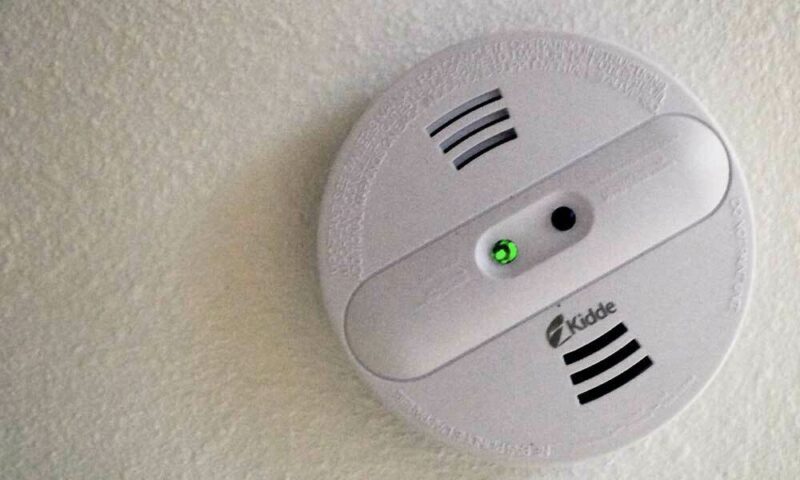
Why are detectors important? Do you need them?
Detectors warn homeowners of certain hazards before they become serious or life-threatening. A smoke detector, for example, can sound an alarm at the first hint of smoke, giving residents enough time to grab a fire extinguisher or escape.
A February 2021 report from the National Fire Protection Association (NFPA) found that nearly 60% of deaths caused by home fires occurred in homes that did not have smoke alarms. It further found that the risk of a fatality in a fire was 55% lower in homes with working smoke alarms.
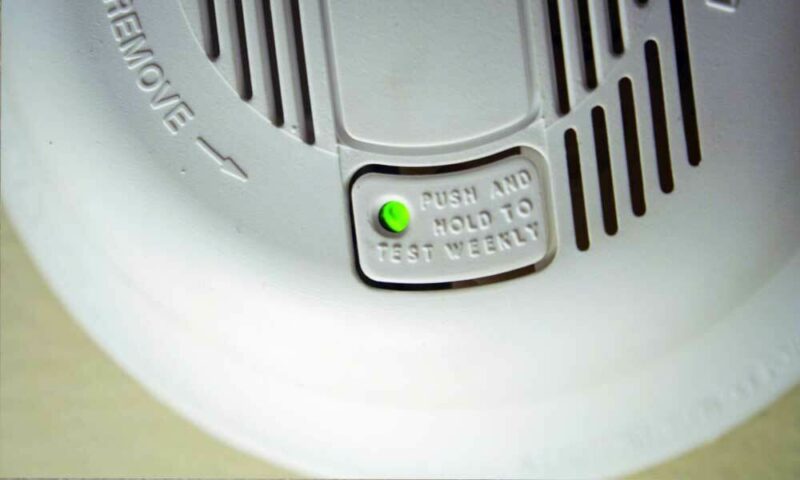
Carbon monoxide is an odorless, colorless gas produced from the burning of fuel such as propane, natural gas, or gasoline. Ovens, stoves, and heaters in the home can produce carbon monoxide, as well as vehicles or gas-powered generators. Exposure to a sufficient amount the gas over a span of time can be fatal. The NFPA states that several hundred people reportedly die from accidental carbon monoxide poisoning each year.
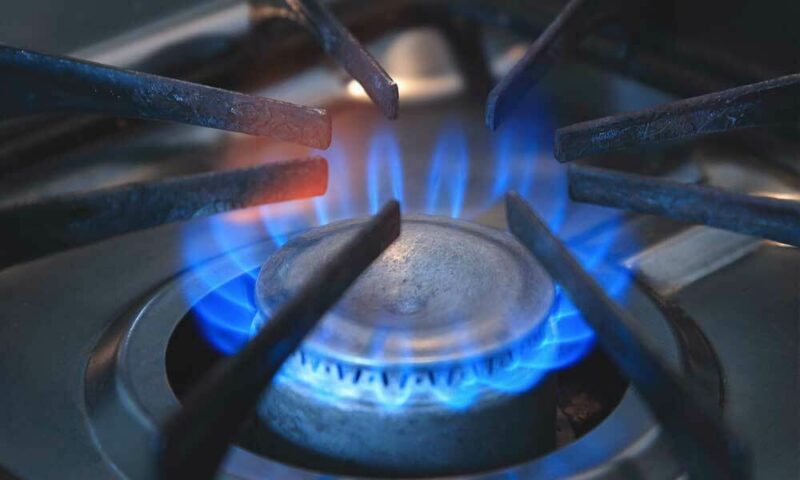
Natural gas leaks can cause fires or explosions. The NFPA estimates that gas leaks cause around 4,200 fires and 40 deaths per year.
Radon gas is not as much of a problem in Texas as in other parts of the country, but it is still worth mentioning. It is an odorless, colorless, radioactive gas emitted by various rocks and soils. Indoor radon most often occurs in basements, of which Texas has few. Prolonged exposure to radon has been linked to lung cancer.
Are smoke and carbon monoxide detectors required?
Texas has no statewide building or fire codes, but many local codes require smoke detectors in residential buildings, including houses and apartments. The Texas Health and Safety Code requires one- and two-family dwellings to follow local building code requirements regarding smoke detectors. The Texas Property Code requires landlords to place smoke detectors in each bedroom of a rental property.
Many homeowner’s insurance policies require both smoke and carbon monoxide detectors. If not, they might offer a discount to homes that have working detectors.
What do they “look” for?
Smoke and carbon monoxide detectors are the most common detectors on the market. Detectors are also available at reasonably affordable prices that can test for natural gas leaks and radon. Other detectors, which are not necessarily priced for consumers, can detect gases like ozone and various halogens.
How do smoke and carbon monoxide detectors work?
Smoke detectors may use several different techniques to look for the tiny particles that comprise smoke. When smoke enters a chamber in the detector, the presence of those particles activates the alarm.
Some smoke detectors use a process that involves a tiny amount of radioactive material. It is not nearly enough to be harmful to residents as long as the detector remains intact. When you dispose of an old smoke detector, though, you should treat it as household hazardous waste.
Carbon monoxide detectors periodically take samples of the surrounding air to test for carbon monoxide molecules. When it detects the gas in a sufficient concentration, the alarm goes off. Other gas detectors work in a similar fashion.
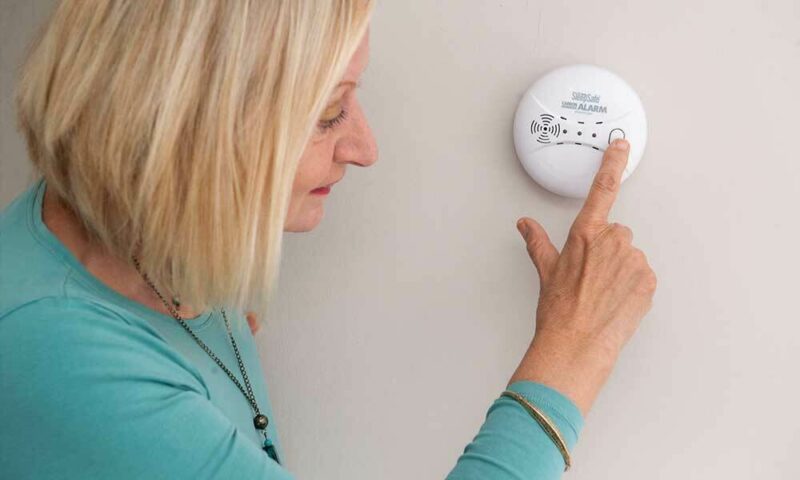
How do I maintain them?
Smoke and carbon monoxide detectors generally do not need much maintenance, as long as you test them regularly. Each device has a “test” button that should emit a horrific beep when you press it. You should do this at least monthly. You should also replace the battery at least once a year.
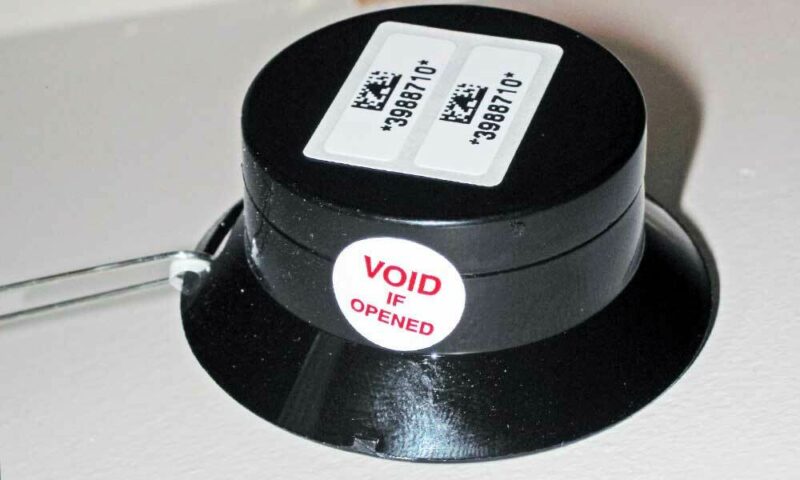
Smart Detectors
Several “smart” detectors are available, including smoke detectors and combination smoke and carbon monoxide detectors. A “smart” device is one that can connect to your home WiFi network and to an app on your smartphone. It allows you to receive alerts while you are away from home, which can be particularly useful if you have children or pets at home.
The main drawback of smart detectors is their price. While most smoke and carbon monoxide detectors are priced around $30, smart devices tend to cost more than $100.
How long do they last?
As a general rule, you should replace your detectors every ten years. Even if you’ve replaced the batteries faithfully during that entire time period.
Need help through the homebuying process?
Finding the perfect home is tough enough - but when you add another layer to the search (making sure the home is up to code and passes inspections) things can get messy. A knowledgeable loan officer and real estate agent can help prevent these messes from ever happening by means of education and attentiveness.
The Wood Group of Fairway, along with our extensive network of local realtors, ensure the smoothest home buying process possible for all of our borrowers. Get started now with the mortgage lender Texans trust!



